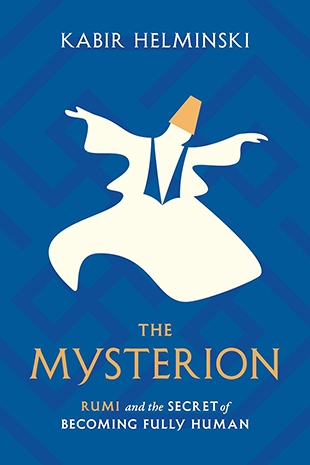“Some years ago, a group of American representatives of traditional Sufi lineages were informally gathered in San Francisco. Someone proposed a question: Of all that this tradition has taught us, what stands out as most important and valuable?
Now, Sufism is a path comprising not only personal practice but a way of life and vast culture. We were, moreover, all trained in different orders and from cultures as diverse as Turkey, North Africa, Iran, and South Asia. I think we were all startled by how quickly we arrived at a consensus that adab stood out as the most uniquely valuable teaching we had received. . . .
“From what I remember of our conversation that day, we seemed to think that adab had enabled a certain quality of relationship among ourselves, across the boundaries of our orders, and in the teaching situation within our own communities. It had softened our egos and introduced a quality of refinement in our relationships. On the path of Sufism, my own idea of spiritual attainment had been transformed from a notion of some austere and impersonal enlightenment to an embodied humility. This is not to say that any of us felt we had attained this ideal, but we held an image of it in our hearts, an image that had been formed by contact with certain of our teachers who were, for the most part, examples of humility, sincerity, sensitivity, respect, and courtesy – in short, adab. . . .
“I have observed that children in Sufi families are lovingly given subtle cues about how to act and move through the world. Abdulbaki Golpinarli, perhaps the best documenter of Turkish Sufi life in the last century, wrote about his own upbringing in this way:
“ ‘I remember that, when I was a child, if I walked quickly, or stamped my feet, people would say to me (not out of anger), “What are you doing, Baki? What kind of a way is that to walk? My child, everything has a heart, a life, a soul; wouldn’t the wood get hurt? Look, it’s laid itself on the floor for us to walk on. Shouldn’t we show respect, and not hurt it?”
‘If I smacked my lips during a meal, all it took to stop me was a look. Except for conversation, a meal was to be silent. If one made a noise by setting one’s glass down, for instance, it was considered unmannerly, a sort of minor sin; neither the glass nor the place one put it on should be treated carelessly. What a bad thing it was to drink water without interacting with the glass, without kissing it before drinking from it, or again before putting it back down! “The glass,” they would say, “is serving us; we should honor it.” While going to sleep every night and again while waking up every morning, I would kiss the pillow; while pulling the sheets up over me or taking them off, I would interact with them as well.’
“In the Mevlevi tradition, this respect was extended to inanimate objects to such an extent that one would never, for instance, say ‘Please put out the candle’ but rather ‘Put the candle to rest.’ Nor would one ‘close’ a door but ‘cover’ it. Fastidious care was taken to convey in language a positive respect. And for every object that one uses in daily life, one would engage in a reciprocal seeing with the object. In other words, as I pick up my coat, I might kiss it lightly, see it, and be seen by it.”
